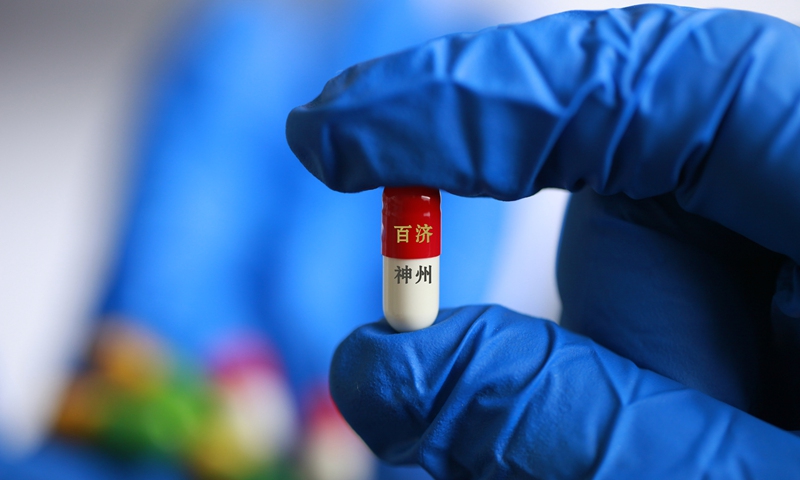
Photo: VCG
As the innovative development of the pharmaceutical industry is becoming another strategic commanding height of the game between super powers, a Chinese lawmaker has suggested to find ways to speed up exchanges and mutual recognition of Chinese innovative drugs in the international drug regulatory systems, as well as in the countries under the China-proposed Belt and Road Initiative (BRI).
The remarks were made in recognition that the international influence of Chinese innovative medicines has not yet formed a certain scale due to the non-technical barriers set by developed countries through rules such as patents and systems.
According to a motion suggested by Ma Yide, a deputy to the National People's Congress (NPC) and law researcher at the Beijing Academy of Social Sciences, China's innovative medicines have been qualified for "going out" in recent years due to the leapfrog development realized by China's pharmaceutical industry with the year-after-year increasing numbers of domestic innovative drugs approved in China and domestic clinical trials.
In 2021, a total of 31 innovative medicines were approved, double the number in 2020. The number of domestic clinical trials increased to 1,368 in 2020, nearly tenfold from 2011. In terms of the number of new drugs released on the global market, China ranked third globally in 2020.
The approval of Brukinsa (zanubrutinib) by the US Food and Drug Administration (FDA) in 2019 showed that China's original medicines have reached a high-quality standard internationally.
In recent years, China has been proactively carrying out health cooperation in ASEAN, West Asia, Central Asia and other regions, laying a solid foundation for local innovative drugs to enter BRI countries in the future. Since the outbreak of the COVID-19 pandemic, China has provided more than 1.8 billion doses of domestically developed COVID-19 vaccines to the international community,which won worldwide acclaim.
As the Regional Comprehensive Economic Partnership Agreement formally came into effect this year, China should promote its innovative medicines in the world by taking advantage of the profound changes unseen in a century, as well as the rare window of opportunity, Ma suggested.
However, the lack of international coordination mechanism for drug regulatory registration is the systematic weakness for innovative drugs to "go global."
While the international community still takes the approval of the FDA and EMA in the US and Europe as the main references for the quality of innovative drugs, Chinese new drugs still face the requirements of supplementary clinical data and phase III trials even after they have gained the approval from China's National Food and Drug Administration.
Thus, Ma suggested that domestic drug regulatory authorities should strengthen the exchange of drug regulatory and certification policies and technologies with the co-construction countries, and gradually realize the sharing and mutual recognition of clinical trial data, testing standards and results, particularly accelerate the approvals and clinical use of China's innovative drugs in the BRI countries.
Ma suggested to highlight the innovative drugs' "going global" in the BRI and increase a special section in the Belt and Road Forum for International Cooperation.
Besides, he suggested the topic of industrial development of innovative medicine to be set up in the existing bilateral and multilateral mechanisms of health international cooperation, focusing on the promotion of China's innovative medicine industry.
In terms of the problems that innovative drugs may face when going global, Ma suggested a joint working mechanism should be set up by related departments to support China's innovative drugs to go global.


